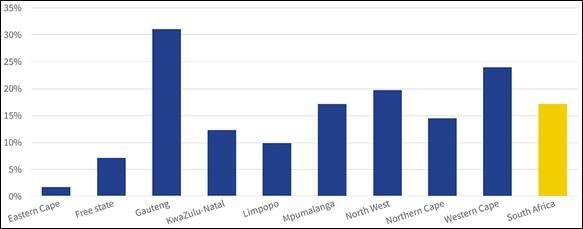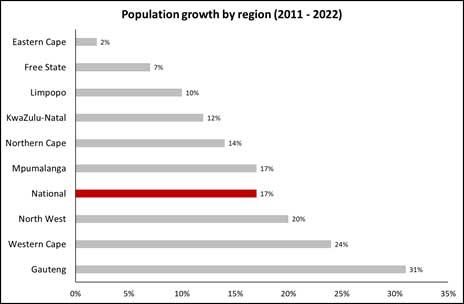
Top stories



ESG & SustainabilityRedisa calls on govt to fix South Africa’s “broken” waste management system
18 minutes



More news
















Inside otherwise ageing countries, there are cities that are bucking the trend and can be termed youthful, and vice versa, he notes. Fifty-four percent of Dubai’s population, for instance, will be aged between 15 and 34 by 2033, contrary to much of the Middle East more broadly which is beginning to age.
“Likewise,” says Tostevin, “almost a third of the population of Bristol will fall into the same age bracket in a decade’s time, the opposite of many other areas in the UK which are set to age. Elsewhere, while Japan has become known as one of the world’s ‘oldest countries’, the population of Tokyo continues to rise and skew towards younger demographics, while surrounding populations grow more elderly and numbers decline.”
“Meanwhile,” says Dr Andrew Golding, chief executive of the Pam Golding Property group, which is Savills’ exclusive residential real estate partner in Africa, “at the other end of the scale, many African nations are seeing increases in their youthful populations.
“For example, here in South Africa, it is estimated that 31.5% of our population will be between 15-34 years in 2033 (source: populationpyramid.net), while a further 24.9% will be below the age of 15 years.
“Significantly, this means that, overall, in 2033, 56.4% of all South Africans are likely to be 34 years or younger.”

“Not surprisingly, as young adults continue to be attracted to key business nodes to start careers and ultimately purchase homes, population growth – one of the key drivers of any housing market – was strongest in Gauteng since 2011, followed by the Western Cape and North West. These were the only three regions where population growth exceeded the national average.” (See chart above.)
Says Golding: “Notably, as we further unpack Lightstone statistics for South Africa, during the past 12 months (June 2022 – May 2023), the percentage of buyers aged between 18-35 were as follows:

“From a residential real estate perspective, this represents a significant underpinning for the local residential market, as the average age of first-time buyers is an estimated 35.6 years in the year to May (2023), according to Ooba, up from an average of 35 years in 2022. The average price paid by a first-time buyer during the first five months of the year was R1.13m, according to Ooba.
“This presents interesting challenges for the real estate industry: in some cities and regions around the world, you need to deliver buildings and services that serve and are desirable to all age groups, as they will be used by both the old and young population of that city and the sometimes contrasting old/young wider population beyond that too.
“In some sectors, the needs of both age groups come full circle. Take, for example, housing needs: larger, older populations tend to mean more single-person households, creating demand for smaller homes – demand that is also present among younger age groups as the trend towards households getting married and having children later becomes further embedded. While the end housing product may vary in terms of detailed fit-out and management, with homes for the elderly possibly having an element of care incorporated, the core product required will be remarkably similar for both.”
As Savills points out, the office is another place where all ages come together: while working from home tends to be favoured by older workers, and with younger employees keener to take advantage of the networking, learning and social aspects of being in the office, any hybrid working model necessitates having a flexible office space which suits all generations when they do come together. This is especially important in ageing societies with shrinking workforces where a supportive space combined with flexible working can help keep older people in employment.
Adds Golding: “These are just a couple of examples of how constant demographic shifts will continue to affect real estate. As ever, it is the purpose of property to respond to these changing – and sometimes contradictory – trends in a way that satisfies our basic human needs for shelter, comfort and functionality.”